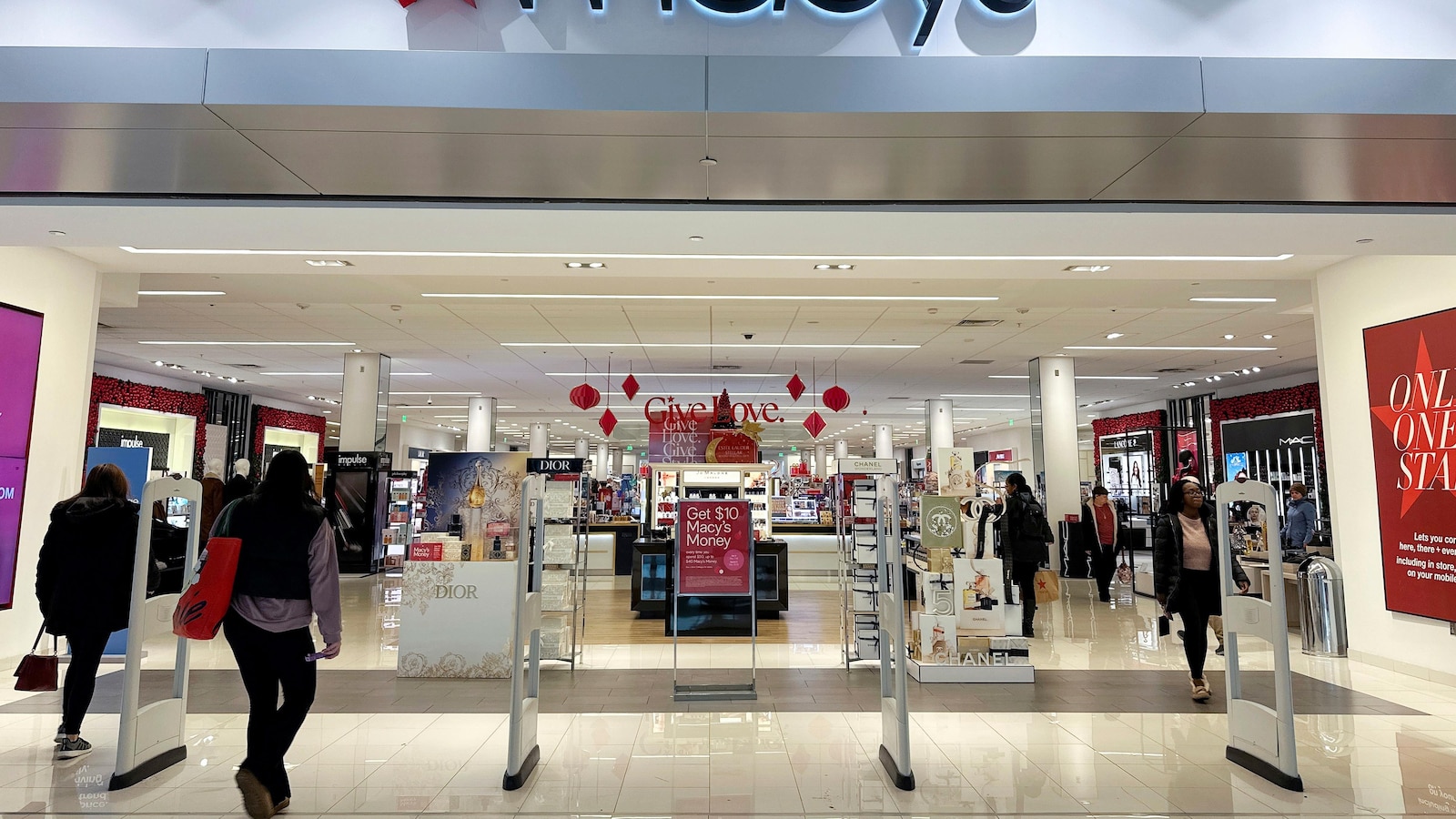
NEW YORK — Macy’s will close 150 stores over the next three years and 50 by the end of 2024, the department store said Tuesday after posting a fourth quarter loss and declining sales.
At the same time the company signaled a pivot to luxury. It said it would open 15 of its higher end Bloomingdale’s stores and 30 of its luxury Blue Mercury cosmetics locations.
While adjusted net income and revenue topped Wall Street expectations, Macy’s offered a muted outlook for the year. Shares were essentially flat before the opening bell.
The department store chain faces a proxy fight from Arkhouse Management which nominated a slate of nine director for election to Macy’s board last week. Last month, Macy’s rejected a $5.8 billion takeover offer from the hedge fund and Brigade Capital Management, an investment manager.
Activist investors and pressure to increase sales are just two critical issues facing new CEO Tony Spring, who succeeded Jeff Gennette earlier this month.
“We are making the necessary moves to reinvigorate relationships with our customers through improved shopping experiences, relevant assortments and compelling value,” said Spring in a statement.
Even before the pandemic, department stores were facing intense competition from online rivals. Neiman Marcus and JCPenney both filed for Chapter 11 bankruptcy protection.
Consumers have proven resilient and willing to shop even after a bout of inflation, though behaviors have shifted, with some Americans trading down to lower priced goods.
Macy’s is maneuvering to shore up sales by accelerating the expansion of small-format stores that can provide more convenience to its customers. It announced plans in October to add up to 30 small-format locations through the fall of 2025, bringing the total number to roughly 42. The next round of expansion starts in the fall.
Yet Macy’s is still cutting jobs to bring down its costs. In January, Macy’s said it would trim about 3.5% of its total workforce, roughly 2,350 employees, and the iconic department store is closing five locations.
Arkhouse and Brigade offered $21 for each of the remaining shares in Macy’s they don’t already own. Macy’s said it had had concerns about the financing plan and the value of the offer.
Last week, Macy said that it was seeking additional financing information from Arkhouse and Brigade to potentially advance talks with its board. Rather than providing that additional information, Macy’s said Arkhouse sought to extend its director nomination window by 10 days.
Macy’s had a quarterly loss of $71 million, or 26 cents per share. Adjusted for one-time charges, Macy’s made $2.45 per share, topping Wall Street projections for $1.98, according to FactSet.
That compares with a profit of $508 million last year in the same period.
Sales fell to $8.12 billion, down nearly 2% from a year ago, but still better than the $8.09 billion that industry analysts had expected.
Online sales decreased 4% compared with the year-ago period, while sales at stores were roughly flat.
Comparable sales, which included sales at stores and its digital channels opened at least a year slipped 5.4%.
The company expects profit for the current fiscal year to be in the range of $2.45 to $2.85 per share, while sales should range from $22.2 billion to $22.9 billion.
Analysts were expecting a annual profit of $2.77 per share on sales of $22.81.
Macy’s, one of the largest department store chains in the United States, recently announced plans to close 150 of its stores as part of a strategic shift towards focusing on luxury brands at its Bloomingdale’s and Blue Mercury locations. The decision comes as Macy’s looks to streamline its operations and adapt to changing consumer preferences in the retail industry.
The closures will affect roughly 20% of Macy’s current store portfolio, with locations in struggling malls and lower-performing markets being targeted for closure. The move is part of Macy’s ongoing efforts to optimize its store fleet and real estate holdings in response to the rise of e-commerce and shifting consumer shopping habits.
In contrast to the closures at Macy’s, the company plans to invest in expanding its luxury offerings at Bloomingdale’s, its upscale department store chain known for carrying high-end designer brands and exclusive collections. Bloomingdale’s has long been a destination for luxury shoppers seeking premium fashion, beauty, and home goods, and Macy’s sees an opportunity to capitalize on the growing demand for luxury products among affluent consumers.
Additionally, Macy’s plans to focus on growing its Blue Mercury beauty stores, which offer a curated selection of high-end skincare, makeup, and fragrance brands. Blue Mercury has been a bright spot for Macy’s in recent years, with strong sales and customer loyalty driving growth in the beauty category. By expanding the presence of Blue Mercury stores and enhancing their product offerings, Macy’s aims to capture a larger share of the lucrative beauty market.
The decision to close stores and shift focus towards luxury brands at Bloomingdale’s and Blue Mercury reflects Macy’s commitment to adapting to the evolving retail landscape and meeting the needs of today’s discerning consumers. By consolidating its store footprint and investing in high-end offerings, Macy’s aims to position itself as a destination for luxury shoppers seeking premium products and personalized shopping experiences.
While the closures may be a difficult transition for some communities and employees, Macy’s believes that the strategic realignment will ultimately strengthen its position in the market and drive long-term growth. As the retail industry continues to evolve, Macy’s is taking proactive steps to ensure its relevance and competitiveness in an increasingly competitive marketplace.


